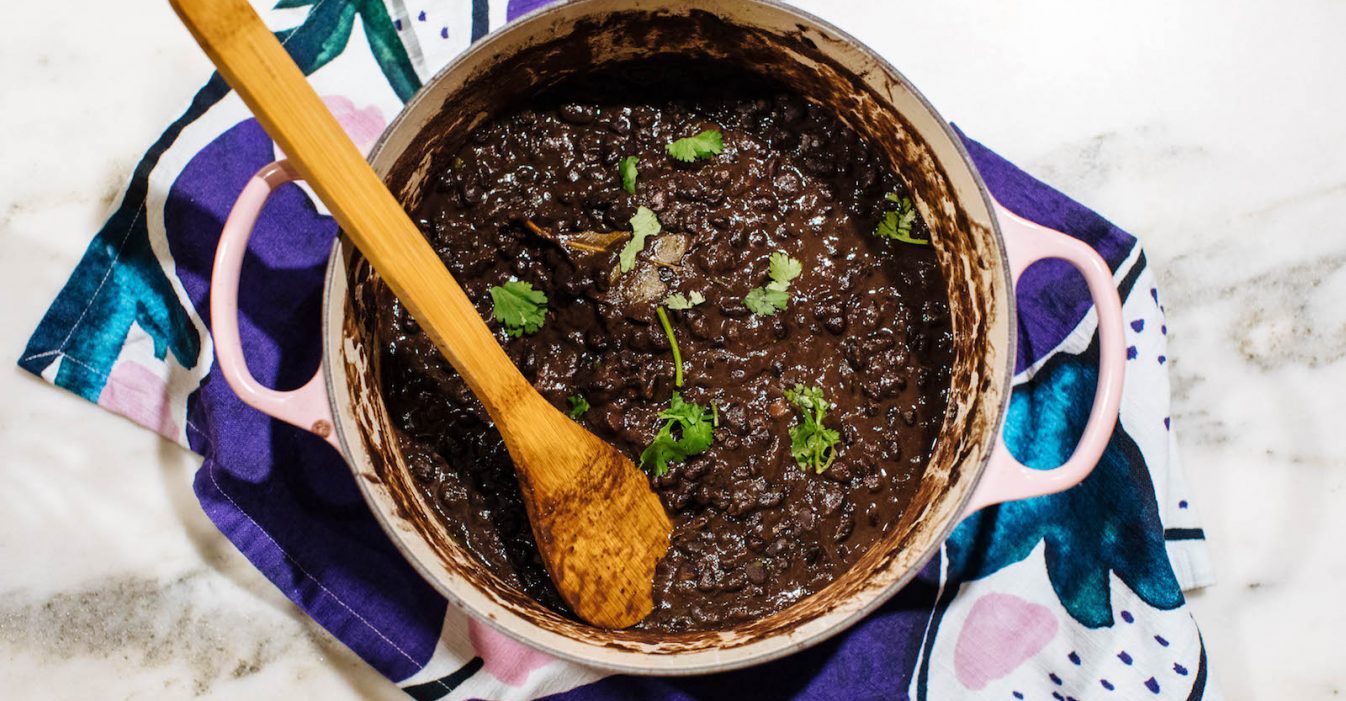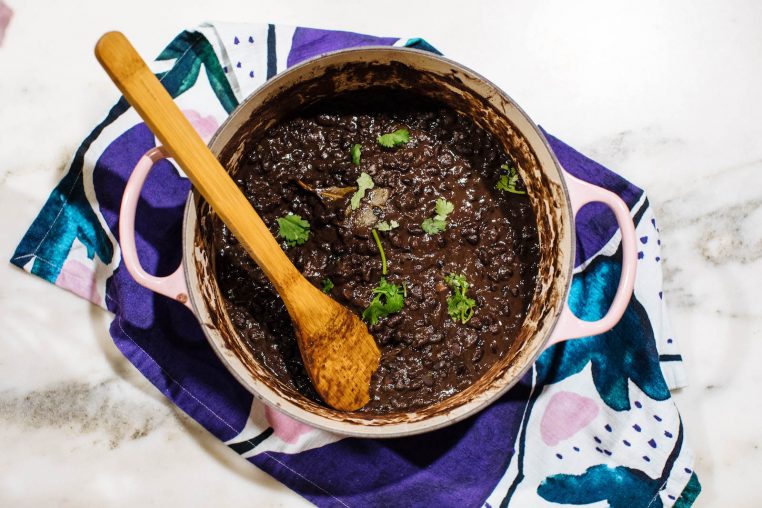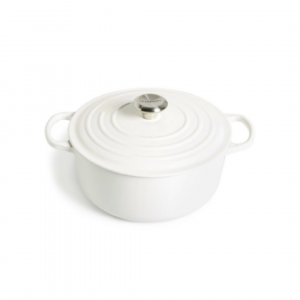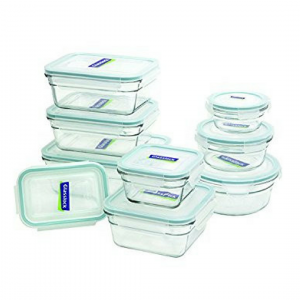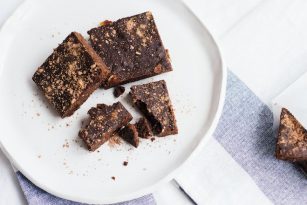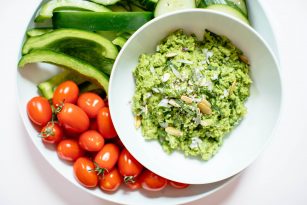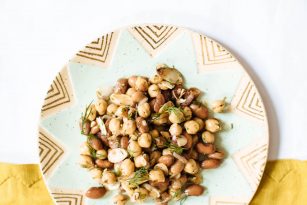Cooking dried black beans are incredibly easy, delicious, and an affordable way to eat plant-based proteins and fiber. Point made with the easiest black beans recipe.
Canned beans are convenient to cook with, but there’s nothing better than having a huge pot of cooked beans that make a big batch of leftovers for the week. Jesse makes a pot of beans at least once a week, whether we’re making black beans, kidney beans, a stew with beans, refried beans for taco night, etc. — you name it, we’ve made beans all kinds of ways. It occurred to me that I haven’t shared a solid, simple, and delicious way to make a pot of beans, so here it is friends!
I highly recommend bookmarking this recipe for this weekend or on your next meal planning day — these make the perfect leftover side dish. You can enjoy these in so many ways from warming up as a side dish paired with any entree, topping a salad for a quick lunch, adding to a stir-fry, adding to a broth-based soup for extra protein and fiber, or eating them plain. The possibilities are diverse, flexible for your lifestyle, affordable, and easy to keep stocked in your pantry.
We often eat plant-based meals for dinner throughout the week, but especially during lunchtime when I’m craving something filling, energizing (i.e. balance my blood sugars so I’m coasting all afternoon), and easy to whip up or reheat — beans are it.
Stripped
1. Fiber
1 cup of black beans contains roughly 15 g of fiber — but not just fiber, protein too. The combination of protein and fiber help your body balance blood sugar and keep you fuller, longer. We know how important fiber is to our digestive system and each day we should aim for at least 35g of fiber (sometimes more depending on your unique metabolism and digestion). Eating enough fiber keeps us regular, aids in a healthy microbiome, and helps our body absorb nutrients.
2. Protein
1 cup of black beans contains roughly 14 g of plant-based protein. Protein (i.e. amino acids) is crucial to our health from rebuilding muscle tissue to balancing hormones, blood sugar balance, and energy production. Read more about plant-based proteins here.
3. Magnesium
Magnesium is an important mineral in our body and plays a key role in 300 cellular functions in the body including muscle function, protein synthesis, blood sugar control, and blood pressure regulation. It’s also been shown to help decrease PMS, headaches (such as migraines), and can be used to help relax digestive muscles which can reduce constipation.
4. Additional Minerals
Beans and legumes are rich sources of minerals, which most of the American diet is lacking, especially when it comes to magnesium which is the start mineral in black beans. Beans also contain molybdenum, folate, copper, manganese, phosphorus, iron, and vitamin B.

